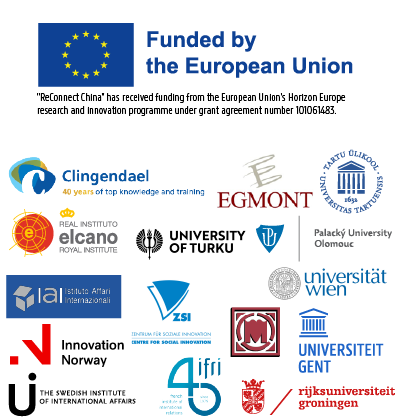ReConnect China
Generating independent knowledge for a resilient future with China for Europe and its citizens
In the contemporary geopolitical world, the European Union and China are in a constant dynamic relationship. With the aim to work towards a resilient future with China for the EU and its citizens, the question this project wants to answer is in which domains EU collaboration with China is desirable, possible, or impossible. With this aim, the project has discerned four central domains of research: science and technology, economy and trade, domestic governance, and foreign policy. The independent knowledge generated in this project will be published in the form of policy briefs, research papers, and academic articles. The project will bring together stakeholders and experts in a Europe-China Knowledge Forum and, through podcasts and MOOCs, aims at raising awareness on China among the general public and European youth in particular.

The ‘ReConnect China’ project has discerned four domains of research (‘Work packages’):
- WP1: Science & Technology
- WP2: Trade & Economy
- WP3: China’s domestic governance
- WP4: China’s foreign policy
The knowledge that is generated in these four work packages is catered to policymakers, the business community, and researchers in WP5: Network and Synergies, and is disseminated to the larger public, with a focus on youth in WP6: Measures to maximize impact.

News
- EU-China IPR workshop successfully held in Beijing (03/02/2026)
- Online meeting on the sustainability of cooperation within the China cluster (30/01/2026)
- ReconnectChina project represented at the Asia-Europe Youth Summit on Science and Technology Diplomacy (30/01/2026)
- EU-China IPR workshop in Beijing on 28 January 2026 (27/01/2026)
- ReConnect China Policy Brief 31: China’s strategy toward Pacific Island countries (07/01/2026)
- ReConnect China Policy Brief 30: Why “Ecological civilisation”? (12/12/2025)
ReConnect China in numbers
- 15 partners
- 12 countries
- 66 researchers
- 23 events
- 48 months
- 42 multimedia outputs
- 62 publications

